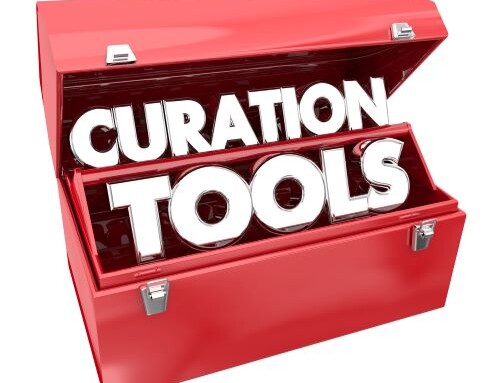Many companies depend on staff to fill multiple roles, and if your role means multi-tasking corporate meeting planning along with other duties it can be a stressful and daunting job. It’s far more than selecting the right venue and juggling the needs of stakeholders. In fact, it makes balancing budgets with priorities; vendor negotiations; contract review; and so much more. Here are nine essential tips for the part-time meeting planner:
1. Join Online Support Groups
Online support groups such as Facebook or LinkedIn will allow you to gain valuable insights from colleagues, professional meeting planners, key sources, etc. These groups can help get questions answered, find key contacts that have been approved or used by other meeting planners with success, learn more about the industry and so much more!
PRO TIP: Be sure to perform due diligence with all sources referred by people in online support groups. Why? Someone else’s idea of quality may not be the same as yours, your needs may be different, the source may not be qualified for your event, and so forth. To ensure that you select the right vendors, venue, sources, etc. check references carefully, view portfolios of past events, ask about staffing for your event and capabilities, review financial stability, and so forth.
2. Don’t Just Plan, Strategize
Planning a corporate meeting requires more than just making reservations and balancing the budget. Professional planners strategically build meetings around key objectives and desired outcomes. Meet with key stakeholders early on better understand the goals and ask what the specific objectives are for this meeting. Use these objectives to guide you toward effective planning. Focusing in on goals is what will transform an acceptable meeting to one that will really resonate with guests. Ideally these goals and objectives should be comprised of two things:
- Attendee Feedback – for example: what was the overall impression that attendees had of the meeting, specifics on how that will be measured metrically such as via a survey at the end of the meeting.
- Business Objectives – for example: what is the overall objective of the meeting such as to introduce a new product, specifics on how that goal will be measured metrically such as via quiz at the end of the training.
3. Clarify and Manage the Budget
The process of setting up contracts and making arrangements can’t begin until your budget is established. To do this effectively, you must not only know your budget but how to allocate the funds. While your budget may be allocated differently, a recent survey by M&C presents the average break down of costs as follows:1

An understanding of where your funds should be allocated will help you stay within your budget and avoid overages.
Another way to help manage your budget it to look at past meetings on the same subject or by the same department. Often you can learn a great deal about how the budget was allocated by reviewing previous year data and looking at how the budget was allocated. If you aren’t in purchasing, you may find speaking to someone in procurement, or contacting the head of the department who ran the meeting the previous year extremely helpful in gathering this information.
4. Cut Costs by Negotiating
Successful negotiations can prove a difficult task even for professionals. Negotiations can prove even more challenging to the planner who isn’t equipped with the knowledge of where or how to negotiate. In addition to following these tips, you can also ask for help from your in-house procurement team who are often experts at negotiating.
- Research surrounding venues, hotels, and vendors. Ask for price quotes from multiple companies and ask your desired facility if they will price match.
- When establishing a contract don’t be afraid to be open regarding your budget. This will help your vendor-partner meet the needs of your group. Additionally, compile a list of your needs. If this is your first time planning a corporate meeting, this information may not be available. However, you may be able to check with the accounting department regarding past meeting costs. They may also have some valuable information regarding past mistakes and unnecessary expenses that you might be able to negotiate with vendor-partners this time around.
- Use big-budget items such as food and rooms to negotiate better prices. If you can guarantee a certain amount of revenue from a large block of rooms or food and beverage costs, you will have more leverage in negotiating better rates on rooms, A/V equipment, and perhaps even secure complimentary services such as parking or WiFi.
PRO TIP: Never stop negotiating. Even after your contract is signed, never stop looking for ways to get a better price, better value or a better deal. For example, if airline ticket prices drop ask for a price match on the lower price or upgrades to seats at no extra charge.
5. Timing is Everything
There are certain unavoidable drawbacks with part-time planning. One of which is that the inexperienced planner is without the relationships and knowledge that the professional has spent years acquiring. Because of this, the part-time planner must be particularly diligent in looking for discounts and special deals. Be ready to act fast as most special offers come and go at rapid speeds. Every second matters! Before starting on your meeting planning project, get permission to make decisions without having to seek approval from a superior as to take advantage of offers when the timing is right.
6. Read and Reread Contract Details
Contract details are perhaps the part-time planner’s greatest obstacle. If you are not aware of what clauses to look for it may end up costing your company thousands of dollars. Make sure to carefully go over the contract details with your legal team. Pay special attention to attrition rates, force majeure clause, and cancellation policies. One way to streamline these issues is to create templates, in conjunction with your legal team, that replace vendor clauses with your own. Another option is to negotiate and customize these clauses based upon the specific needs of your meeting, but be sure to run this past your legal team to ensure that there isn’t something you’ve overlooked.
7. Follow-up Auditing and Reporting
Even after the event ends, your job is not quite over. Dedicate time to meticulously compare receipts against the initial agreed upon price as well as the services actually rendered. While it may feel tempting to skip this painstaking process, it is necessary to avoid accidental overcharges and ensure that you were accurately charged as well as received promised discounts, rebates, etc.
8. Outsource Where It Makes Sense
Don’t forget that oftentimes outsourcing all or part of the planning is more cost-effective in the long run. Here are some of the main areas to consider outsourcing.
- Venue Selection and Negotiations: Meetings planners can use their years of experience and contacts to help you find a venue that fits with your group. They can also help with negotiations and contract details.
- Branding and Technology: Ask a professional team to help you create specific branding for your event to give it the extra polish it needs. They can help you create the event logo, slides, signs, and even an app to improve the attendee experience.
- Day-of Logistics: Even if you are handling most of the planning yourself, you may want to consider hiring a day-of meeting planner. They will be ready to answer questions and make sure everyone is in the right place at the right time. A professional also knows where things commonly go wrong and will be quicker in diffusing issues as they arise.
9. Quantify the Results
Early in the planning process you created your strategy based on two objectives: attendee feedback and business objectives. Now it’s time to gather the data and report on the findings. Providing this kind of data can be helpful for stakeholders to understand how the budget spent translates to immediate outcomes. Additionally, you may want to suggest that they remeasure in 3-6 month to see if the business objectives have improved overtime or how they impact other metrics such as productivity, profitability, etc. These can add value to the role you play in meeting planning.
Planning a corporate meeting is not an easy job. However, being attentive to detail, focusing your budget to meet key objectives, and negotiating prices will go a long way in helping you plan a successful event. After you complete your tasks, don’t forget to take a deep breath and relax after a job well done.
For more information about planning a corporate meeting, contact Gavel International to learn more about how outsourcing can help streamline your process.
__________________________
Sources:
1 http://www.meetings-conventions.com/News/Features/meeting-spend-survey-budget-research/?p=1
This article was last updated on November 28, 2022
- Attract and Retain Top Talent with These 10 Desirable Company Culture Traits - December 23, 2024
- 7 Myths That Make Your B2B Marketing Content Ineffective - November 25, 2024
- 9 Fun and Moving Ways to Empower Employees by Giving Back - November 18, 2024






